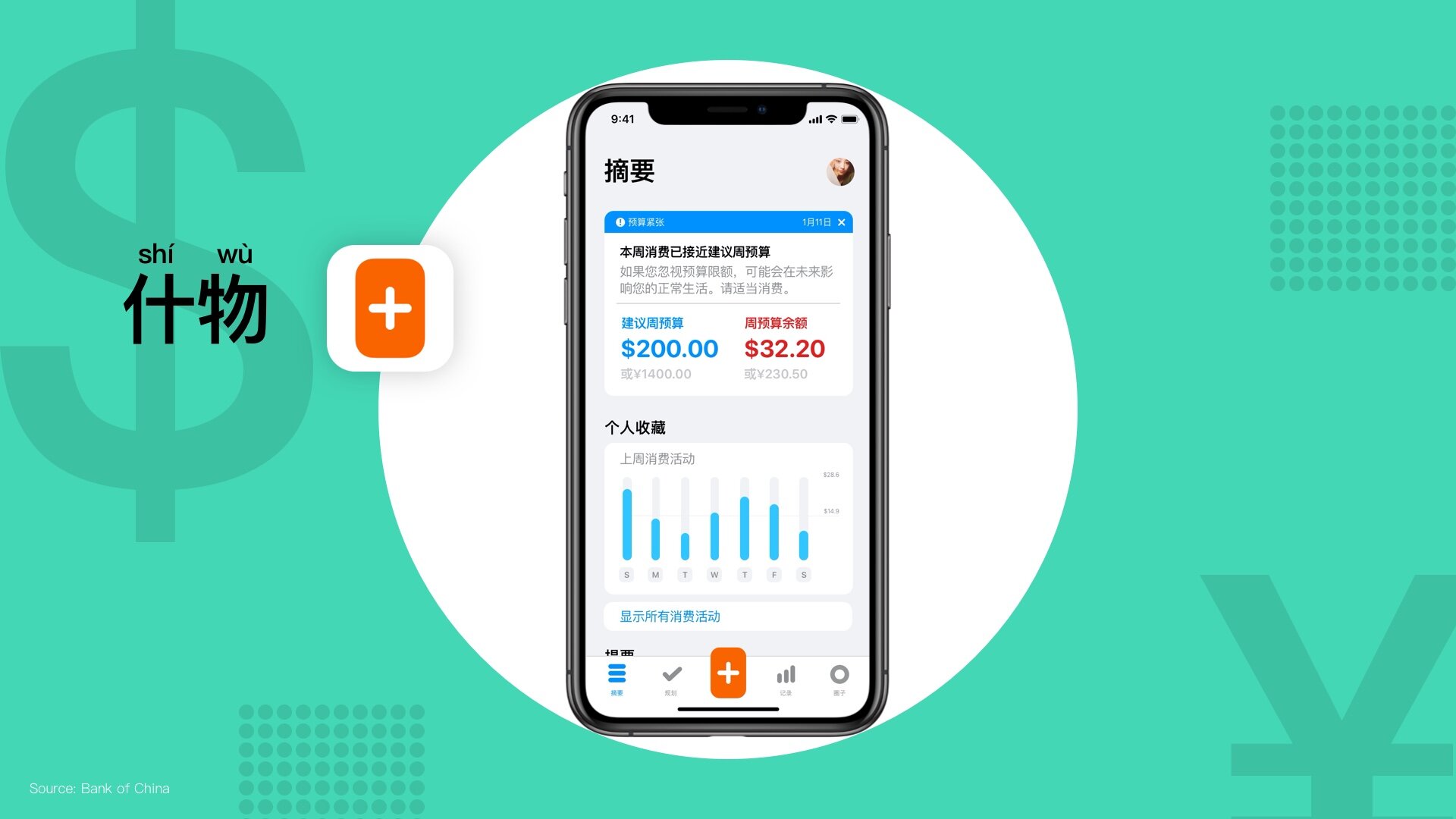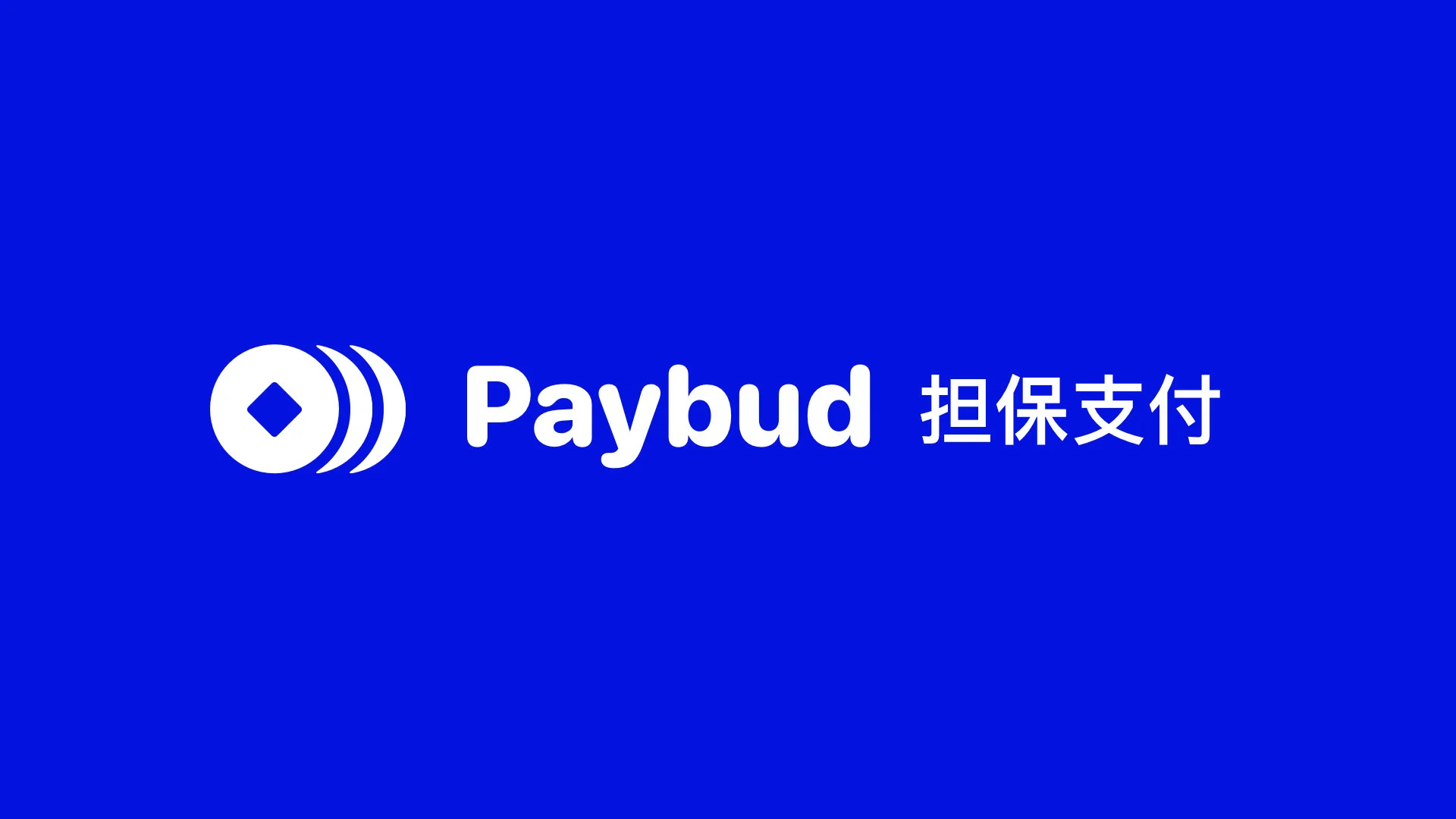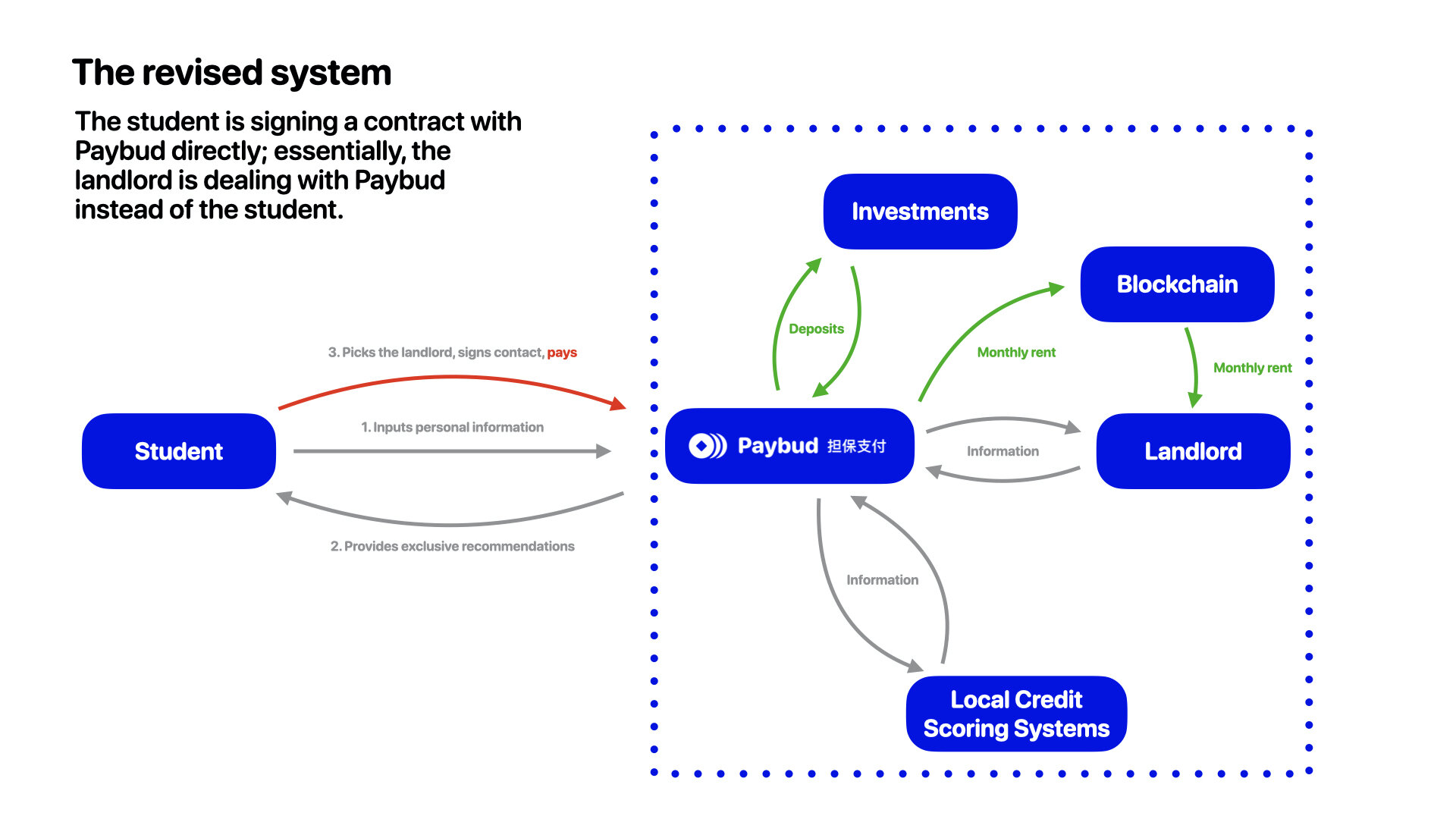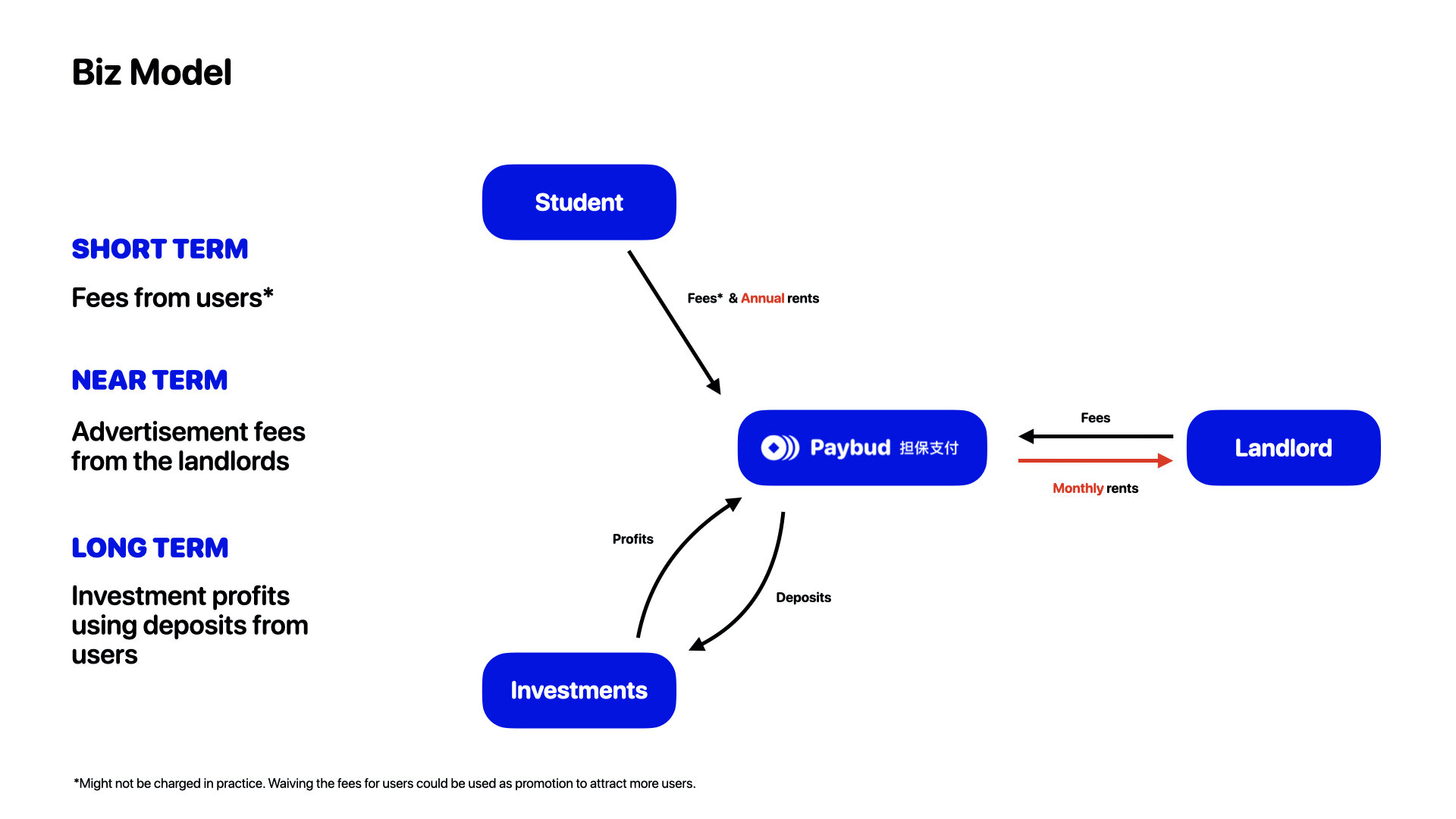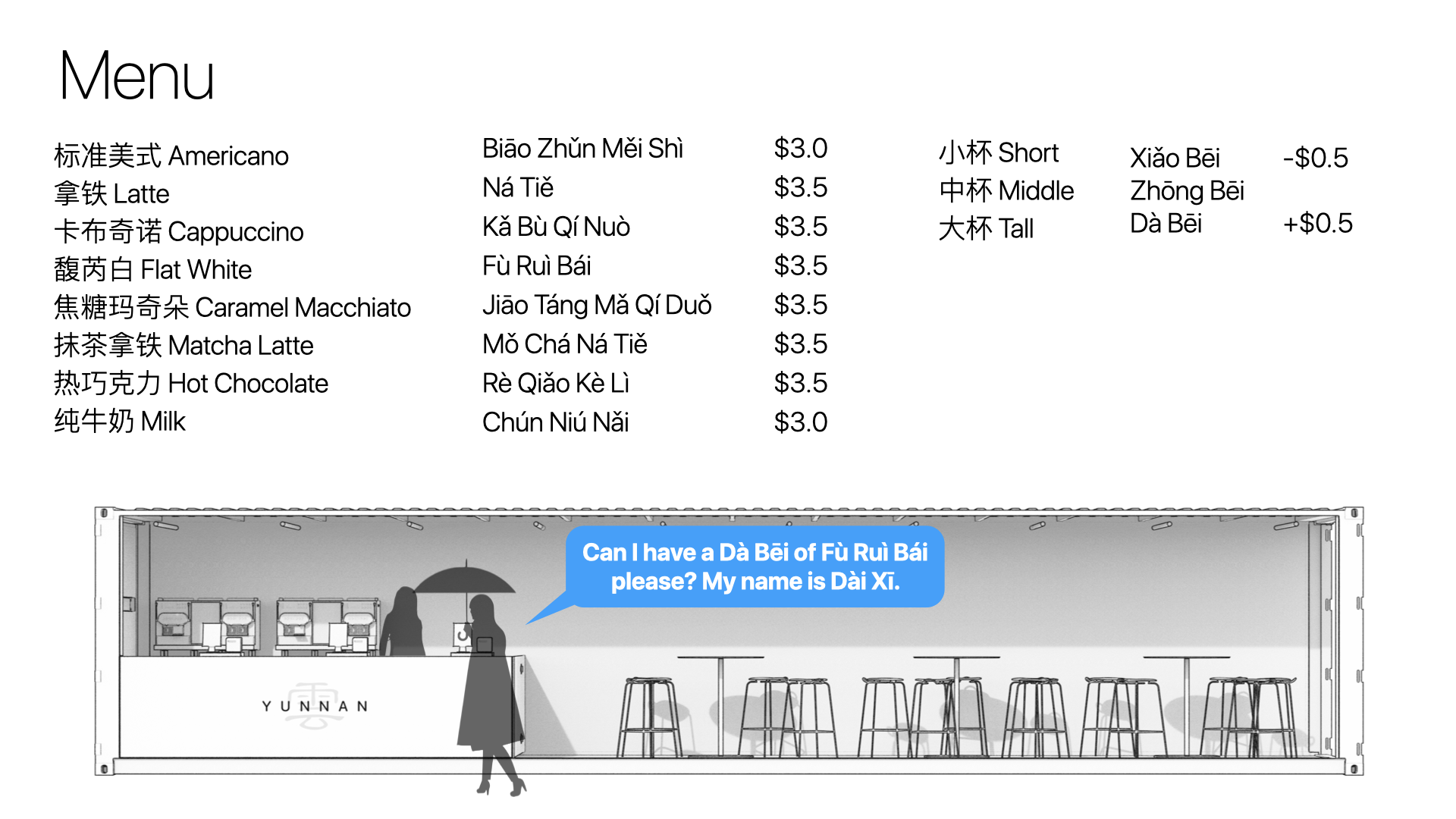Journey to the West: Integration of Chinese Students in America
In his thesis, Journey to the West: Integration of Chinese students in America, Hui Zheng set out to face his contemporaries' problems, focusing on the international student community in the United States. Hui argues that the most significant challenges in this journey are finance, information, language, and culture. In his projects involving multiple disciplines, he answered each of the topics with unique design styles. He hopes that the effort to tackle the challenges in his thesis may encourage more designers to join the league against this inequality that exists under the surface.
"Chinese students don't need a Lonely Planet guidebook; we need a custom-built infrastructure, so we don't waste time learning how to tackle the challenges that those who came earlier have already learned and resolved."
Shiwu
Shiwu is an app that connects the financial situation of Chinese students with their families and friends. Most of the target users are sponsored by their families, while all of them are under strict policies that prevent them from transferring more than $50,000 per person every year. Hui's primary goal is to bring every family member into the decision-making process so that students can learn how to balance need and consumerism in an American society that holds different financial values than China.
AI is also embedded in the app. It learns the students' behavior and makes recommendations based on their expending history and the crucial changes in the financial markets, such as the exchange rates.
Paybud
Paybud is a home-renting and rent-paying platform that aims to replace the current system for Chinese students. According to Hui's research, the majority of students rely on brokers to source the information due to restrictions like language, policies, and other related aspects. As a side effect of the rent stabilizing laws, students also rely on guarantors to prove their ability to pay rents on time. Paybud replaces the brokers and guarantors to eliminate the premiums paid to the two major intermedia and simplifies the entire home-renting process by reducing the steps taken by the students.
The most significant innovation of Paybud is the revenue-generating method. The platform does not rely on one-time fees as the primary income but collects the interests based on the deposits from the users. This reduces the pressure on both students and landlords, who usually pay more to find each other.
Dyno
Dyno is an in-class, real-time captioning system that helps instructors and language learners improve performance. The language barrier profoundly harms student proactiveness. Hui's design solution takes its inspiration from the existing captioning systems used by video platforms like YouTube. He discovered that Chinese students are exceptionally comfortable reading captions while consuming content and willing to use it to learn new languages. Dyno brings the same system to traditional classes.
The design of Dyno mimics nameplates, which have already existed in many classrooms. The moderate form eliminates the distraction caused by the new device. The control wheel sits on the side of the invention to rewind the captions for a quick recheck. It is also available with a dashboard on the desktop to review the past classes recorded by Dyno.
Project Yunnan
In an experience design project, Hui explains why he thinks Chinese students do not need a second name in their daily lives. He creates an environment to mimic the coffee shops where Chinese names are almost a taboo to use, only, in this case, English is the language that is not well-spoken.
Project Yunnan will take place in a container that could find its place in any park or public space with enough room, and use coffee beans from Yunnan Province of China, where the Chinese coffee culture originated. Hui proposes launching the project with the domestic coffee provider, Luckin Coffee, as the primary business partner to realize the plan and bring it to New York City.
To learn more about Hui Zheng's work, take a look at his projects in more detail at huiof.design.














